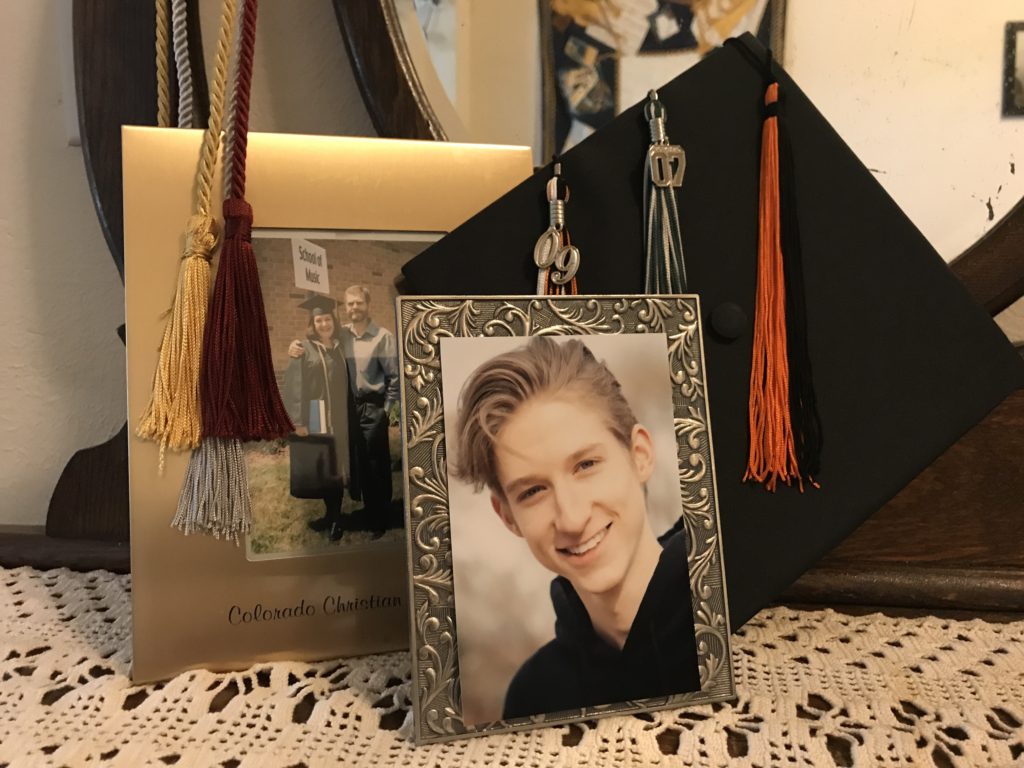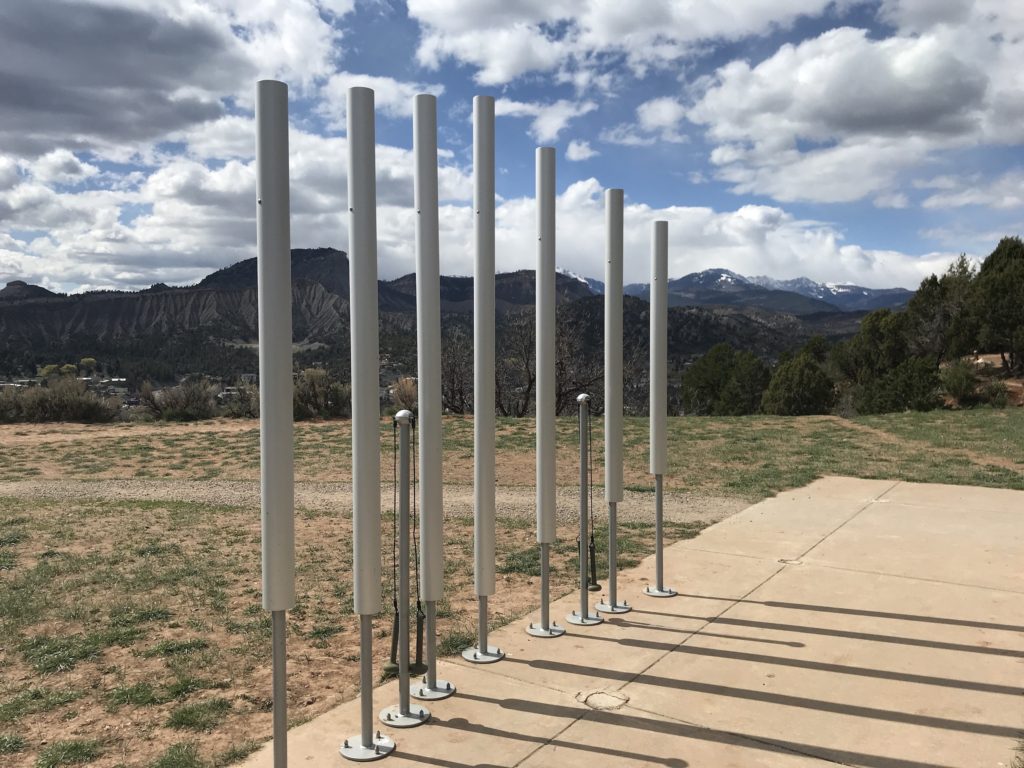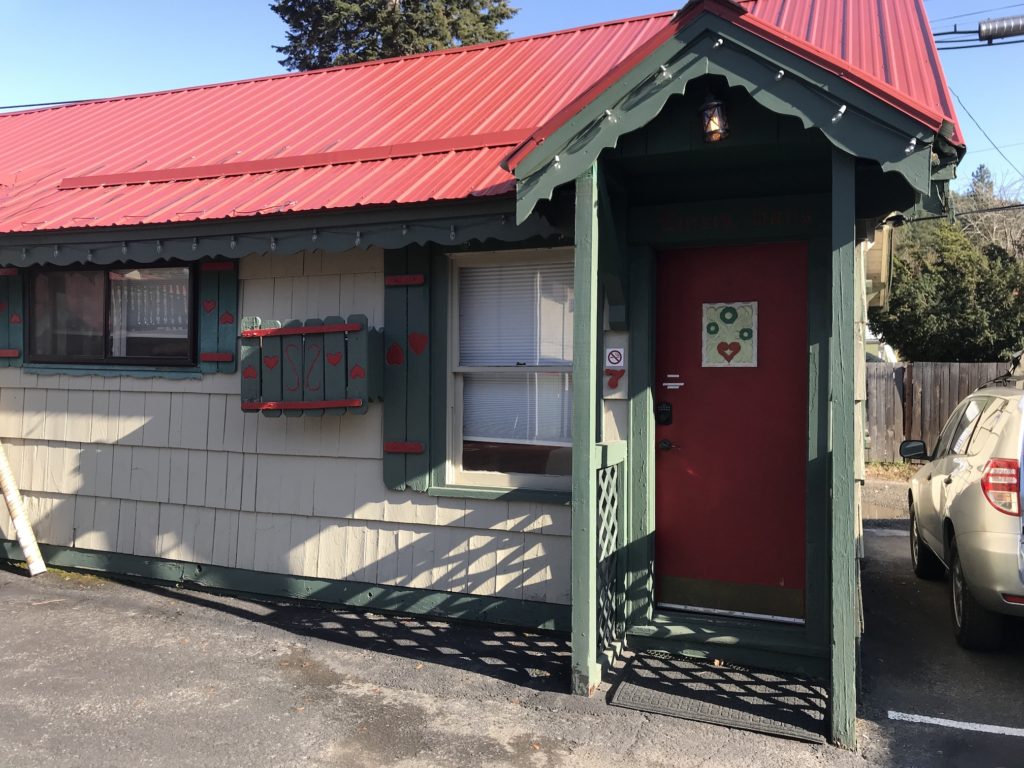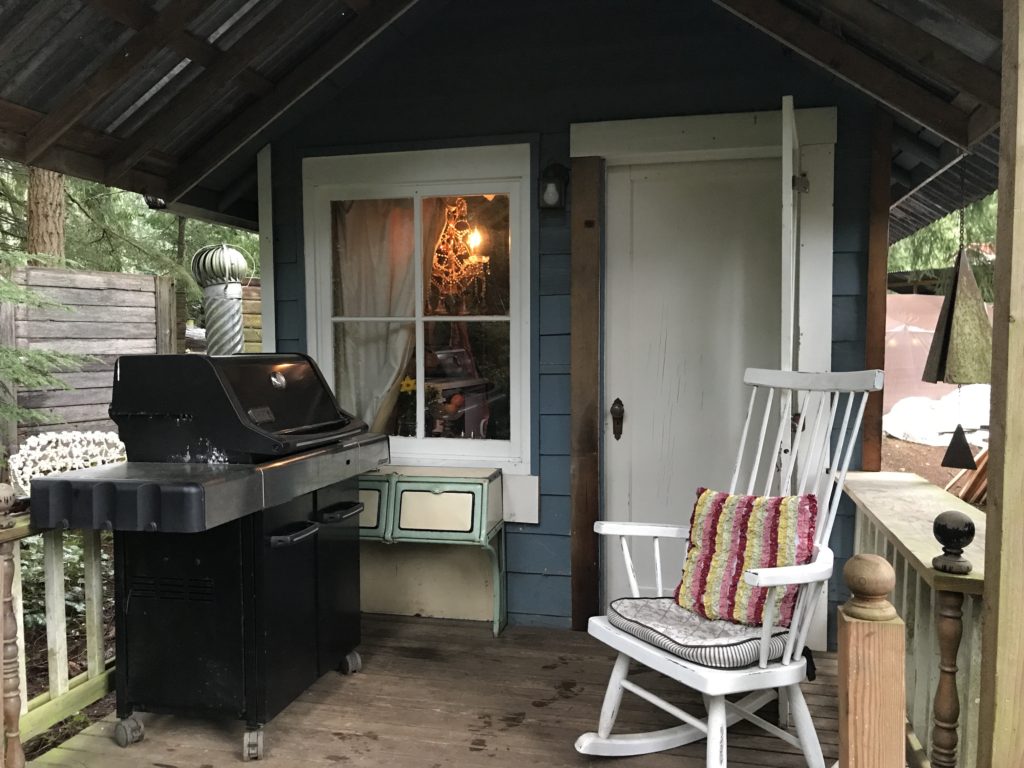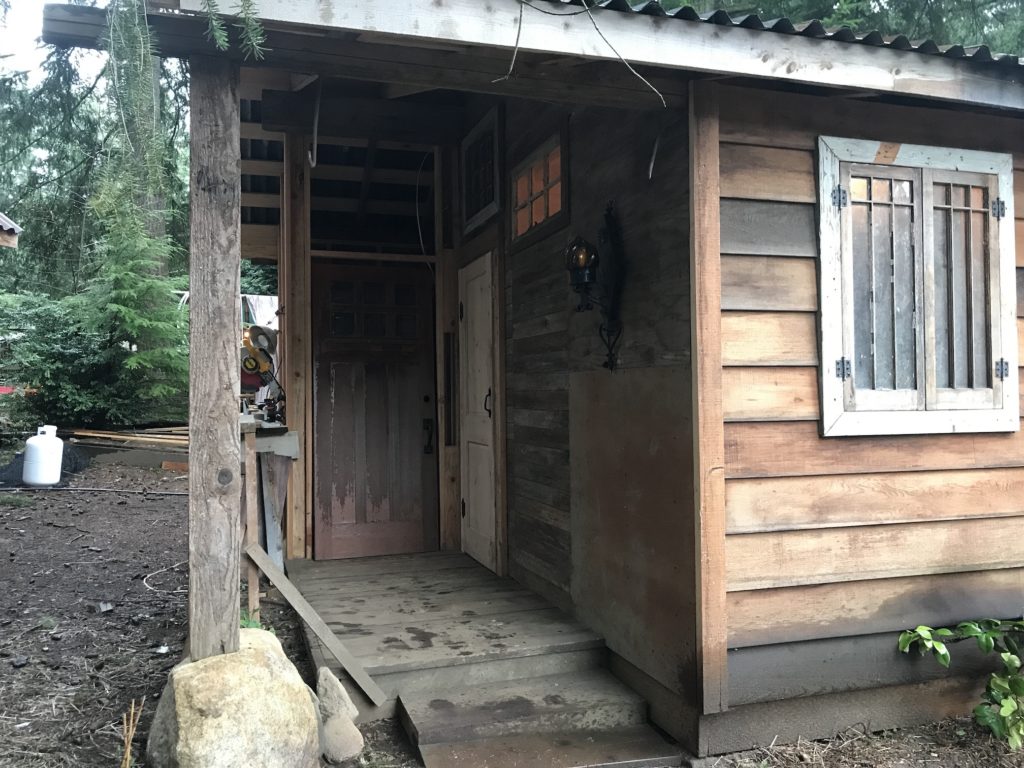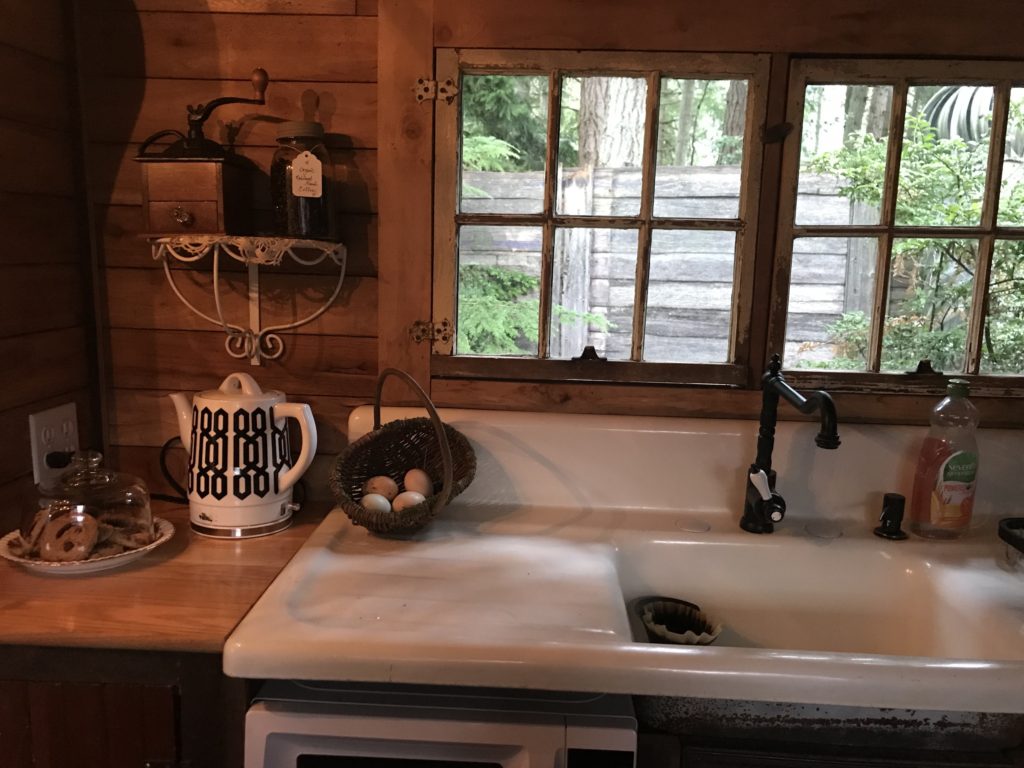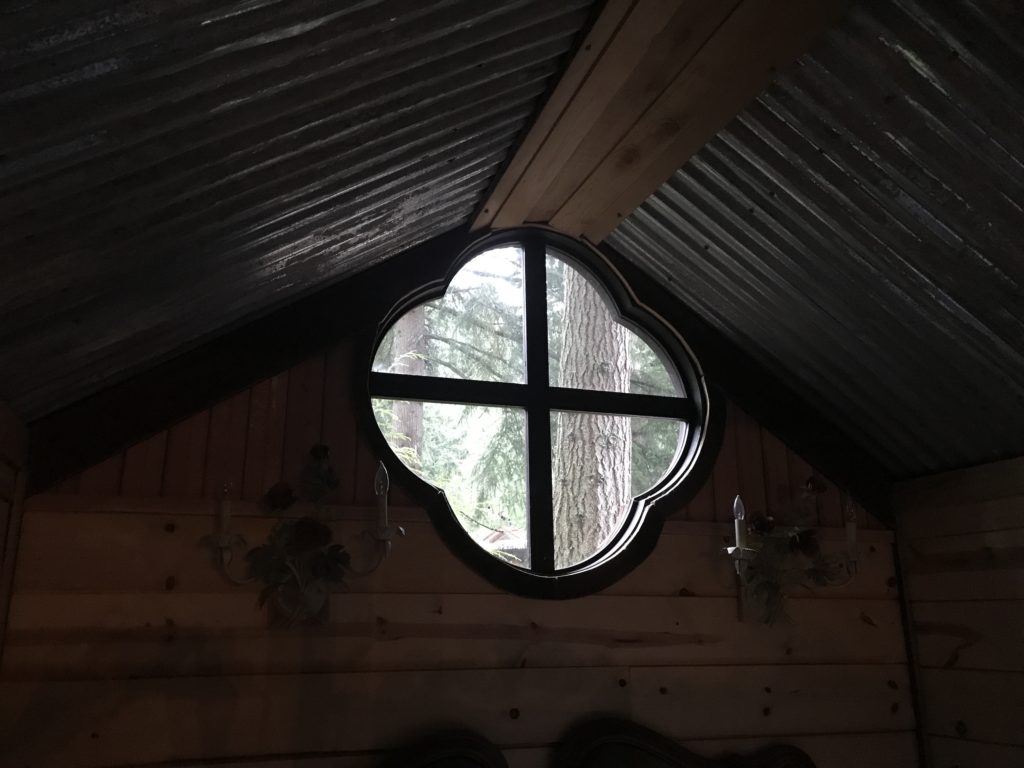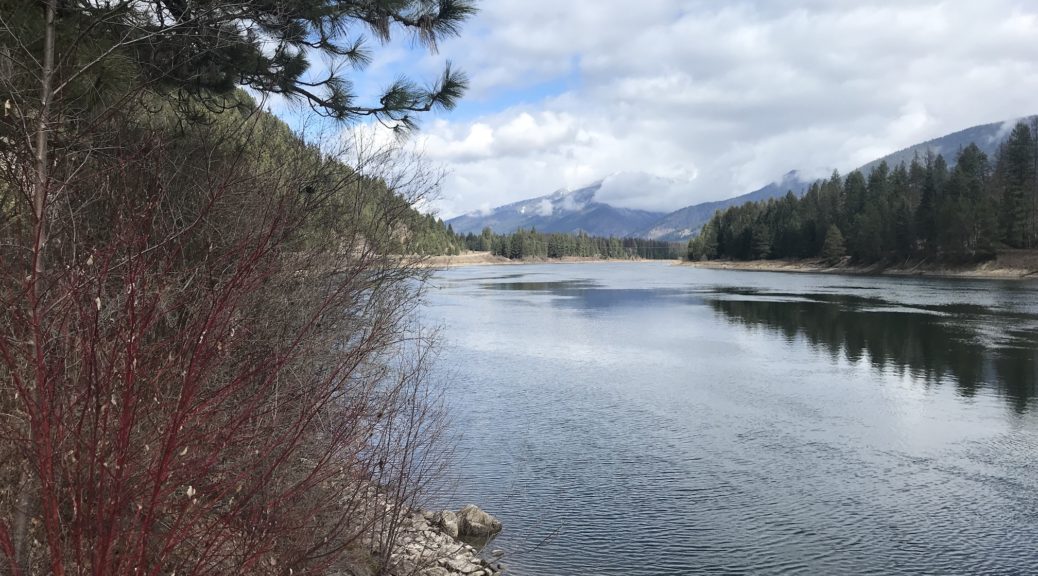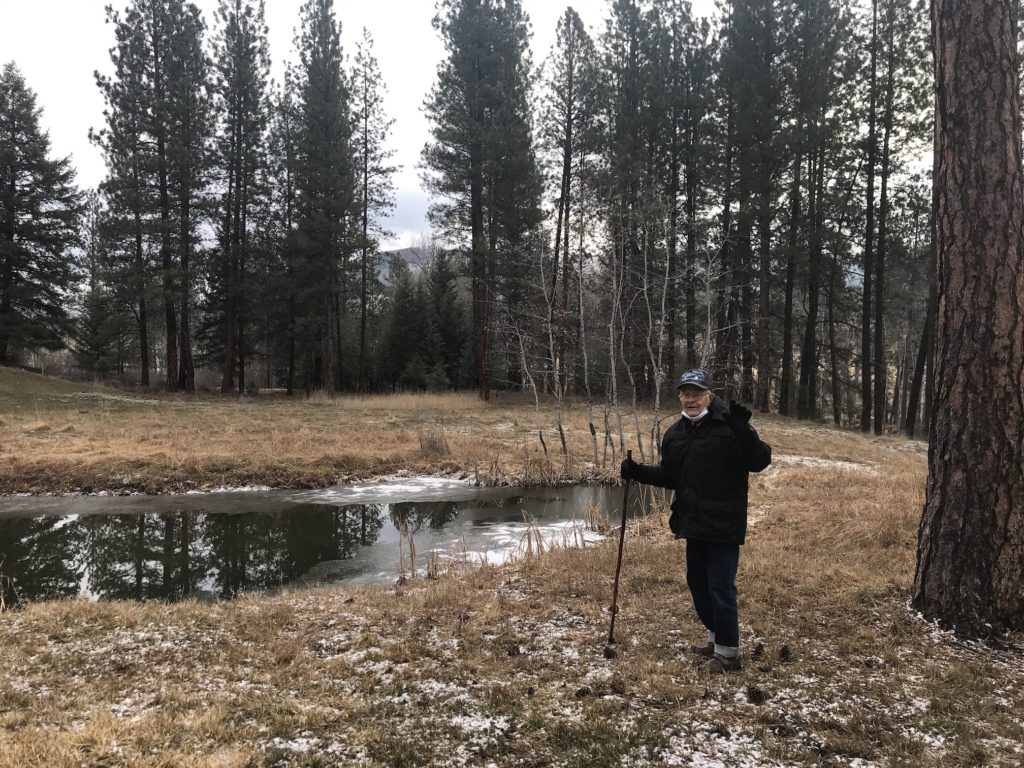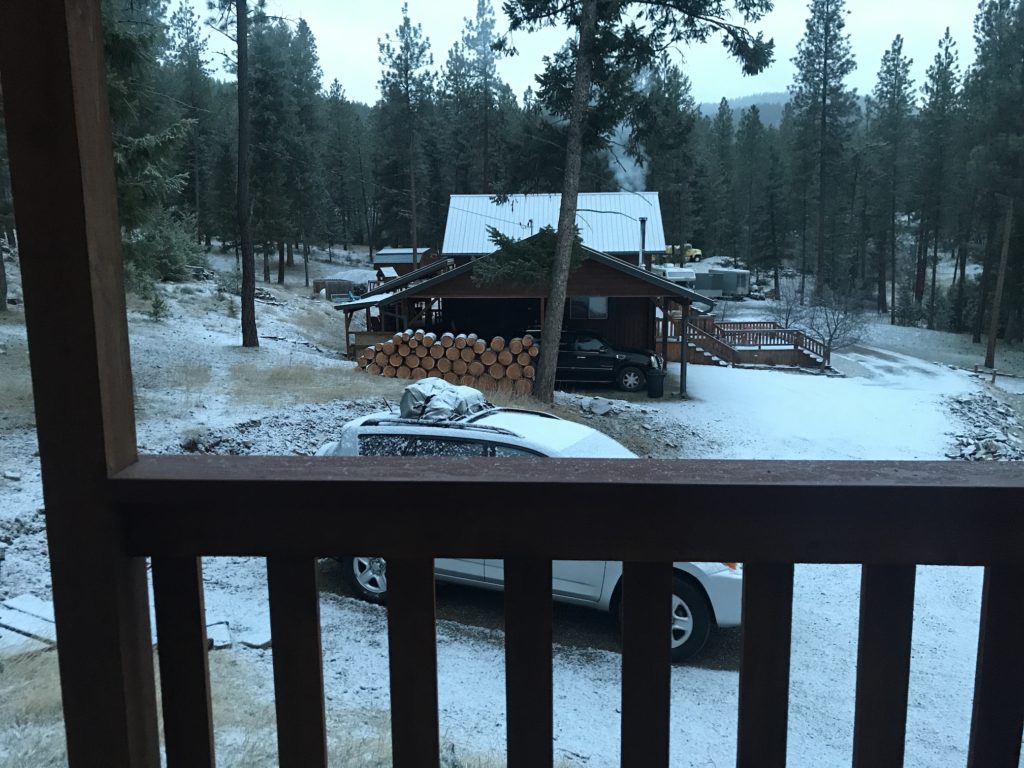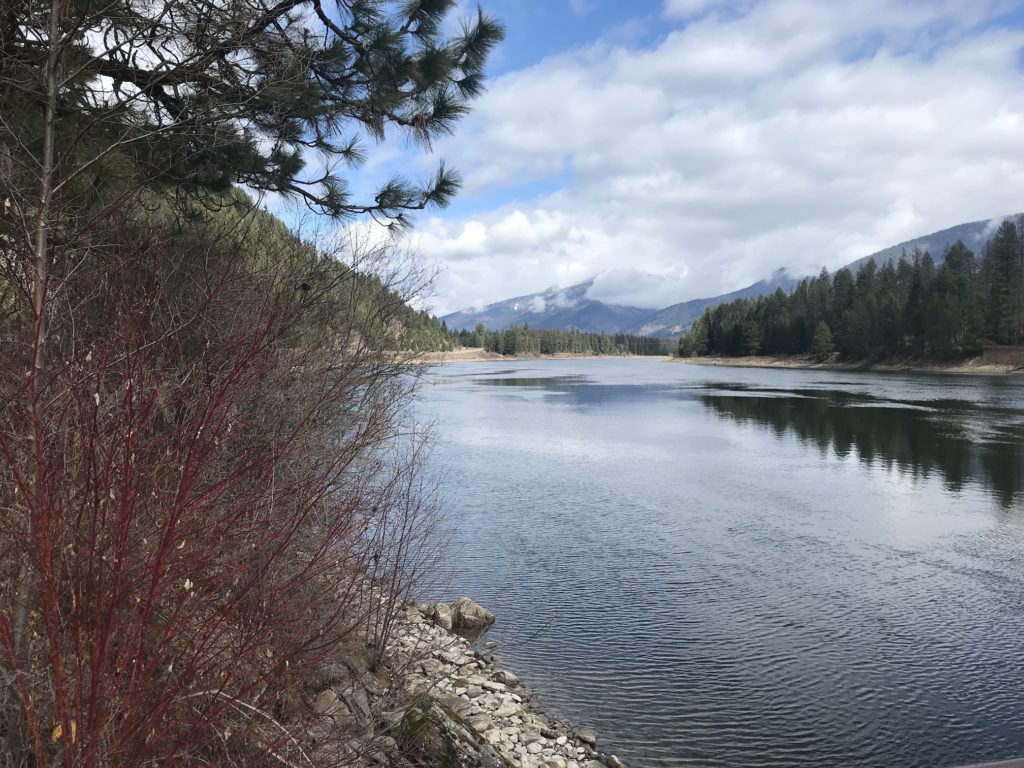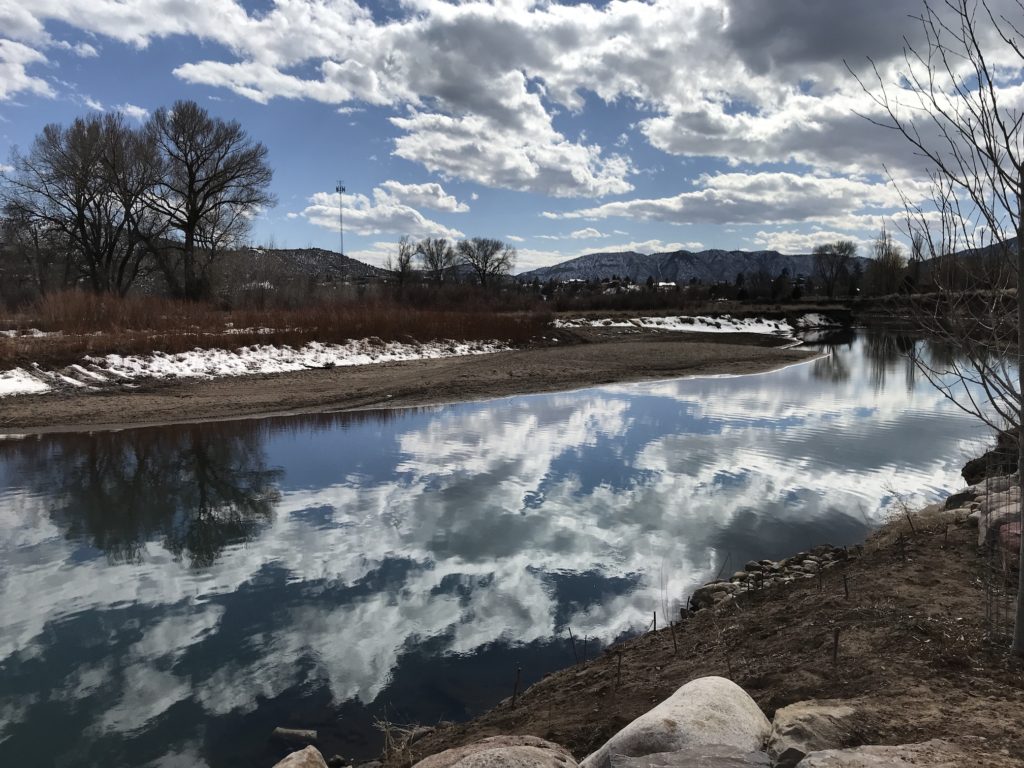She rose before dawn- which comes pretty early the end of May; washed her face, popped in her contacts, took a hot mineral soaking bath and pulled away from the curb by 6:20 am, feeling confident. She loaded the car the night before. All she had to do was grab her purse and electronics bag. Already she was wearing her black column dress with the sandals. She had allowed a full extra 45 minutes travel time just to be safe. What a glorious morning! Hardly anyone else was on the city streets – or the highway for that matter. Her route would take her over the notorious Red Mountain Pass. Precipitation was expected – but also temperatures of 50 degrees at key points of reference. Rain was lovely-and much needed. As she began the ascent to the first of three Rocky Mountain passes she would traverse in the space of 70 miles, the absolute gob-smacking beauty of peaks and pine trees, valleys and budding quaking aspens snatched her breath away. She let out a loud and involuntary “woo hoo! Hallelujah!” right there in the car by herself. The experience was transcendental and she wasn’t even meditating with her eyes closed, free of all distraction. Far from it. She kept her eyes and her attention on the road, yet took in the wonder of beauty all around, savored the gentle rain that began to fall, teardrops of joy from the sky lingering like diamonds on the glass and then running in tiny rivulets down the silver side of the car and falling on pavement; millions and millions of tiny diamonds that without warning became pearls of snow. The pearls collected, slowed her progress, caused her to exercise ever more caution. Snow. Four or five inches of it on Coal Bank Pass. Spring snow. Not snowpack – the weather is too warm. Spring snow, slushy, crunchy snow cone snow over non-frozen pavement. She continued without incident up the pass, breaking new trail. How many other vehicles had she seen? One to this point. What a blessing, no string of traffic pushing her to go faster!
A few vehicles approached from the opposite direction, trucks all of them. An F250. A utility work truck. Rugged autos. Halfway up Molas Pass she met a snowplow, descending as she was ascending. Molas Pass was sporting a six or seven inch accumulation of the white stuff – still slushy and crunchy and slippery.
She tried to talk to the car that passed her. She said things like, “Hello? I see by your license plate that you are not from these parts, welcome to Colorado! Did you notice that I bear a Colorado plate? This is not my first Rocky Mountain rodeo. Did you consider there might be a reason I am traveling slower than you want to travel? Lincoln Town Car is it? Great! You may have – no probably not – noticed the model of my vehicle. In very big letters it proclaims RAV4. That 4 means something important here in the mountains. That 4 might also be assumed to be “A.” In these parts “A” stands for all-wheel-drive. The vehicle I drive and my speed are both intentional choices.” Talking aloud gets the irritation out of her system. There are more vehicles on the road now. She is untroubled when a couple pickups pass. They drive as though this is a daily commute and they know what they are doing. She doesn’t talk to them. They can go on ahead, break the trail, if they like.
The valleys between passes are rainy and wet, but not snowy. She contemplates the option of laying over in Silverton and thus missing her grandson’s graduation. Red Mountain Pass lies ahead. But no, the approach to Red Mountain looks fine and she is definitely not turning back – that would be ludicrous with two passes behind her and only one ahead. Again, the ascent looks fine, but the rain quickly turns to snow and accumulates fast. Just ahead she sees the Lincoln Town car dead in the water, straddling the center line at an awkward diagonal angle. There is nothing, absolutely nothing she can do for them by stopping except to add to the traffic jam. There might be room to pass on the right – just barely – and clear the precipice that yawns – but the road is slick. There are also tire tracks to the left and she opts for those as she can see no oncoming traffic for a mile up the incline. By the time she reaches the summit, the snow accumulation is 8 inches. A highway patrol car sits off to the left with lights flashing. She pulls off the road to the right behind an F150 and rolls down her window calling to the driver as he exits, “Are they closing the road?” “I don’t know,” he answers. “The officer is checking on a semi stopped just over the hill. I’m going to go talk to him. Hey, was that white car still in the middle of the road when you came through?” Affirmative.
She reached into the back seat for her winter hiking boots and wool socks and pulled them on. She retrieved her down jacket from storage in the hatch and pulled it on. She got out and walked to a better vantage point. The F150 driver came back. “The officer and semi are waiting for the snowplow coming from the other direction, I’m going to give it a try.”
She watched the driver disappear over the hill. She waited. He did not back up. Soon the snowplow came around the parked semi. She started her engine and moved forward, passed the semi. There were no other obstacles in sight. She proceeded to Ouray where she found a phone signal and texted ahead to warn family members of her delayed arrival. Two hours later Coal Bank Pass closed. Two hours later when she was already safely seated at the Avalon watching her grandson move his tassel from one side the mortar board to the other.

